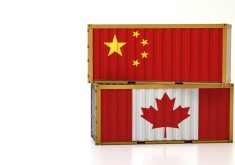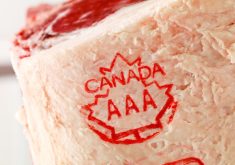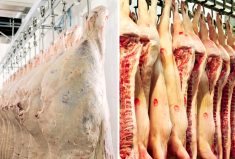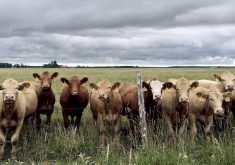Glacier FarmMedia – Canada’s export-oriented agriculture organizations were quick to cheer Canada’s announcement of trade deal negotiations with the Association of South East Asian Nations trading bloc.
“As a market of over 640 million people with a (gross domestic product) of $3.6 trillion, Canadian agri-food exporters see huge potential in the fast growing and dynamic ASEAN countries,” said Dan Darling, president of the Canadian Agri-Food Trade Alliance (CAFTA) after the Nov. 17 announcement.
Cereals Canada chief executive officer Dean Dias said the region is already important for Canadian agricultural exports.
Read Also

Canada seventh-most influential country on agri-food
Report from Dalhousie University and MNP shows Canada ranks seventh among G20 countries on agri-food influence.
Why it matters: Securing a more comprehensive trade agreement with ASEAN countries could significantly boost Canadian exports to those countries.
“With this agreement we expect to strengthen our ties with customers in Southeast Asia while meeting the rising demand for staple food products in this dynamic fast-growing region,” said Dias in a statement.
The ASEAN includes most major economies in the region. Its members are Indonesia, Malaysia, the Philippines, Singapore, Vietnam, Thailand, Brunei, Cambodia, Myanmar and Laos.
It formed in 1967 as an effort to bring that region’s nations together in a broad range of areas including trade. Since then it has grown in both membership and economic importance as Southeast Asia has become one of the world’s main growth engines.
Large amounts of Canadian crops are exported to the members and Canada hopes to see that expand with a hoped-for deal in place.
“The commercial relationship between Canada and ASEAN has significant potential for growth,” said International Trade Minister Mary Ng in announcing the negotiations.
“Proceeding with negotiations on a comprehensive free trade agreement with ASEAN provides an important opportunity to secure enhanced market access for Canadian business to supply chains in the Indo-Pacific region, create new opportunities for our businesses in this rapidly growing market, and drive long-term job creation and sustainable, inclusive growth for generations to come.”
Australia has a longstanding relationship with ASEAN and has recently deepened its trading ties with the bloc, which represents much of its trade.
Two-way trade between ASEAN nations and Canada was $26.7 billion in 2020, with another $5.8 billion in services. A feasibility study commissioned by the two sides estimates that trade would increase by $7.8 billion under freer trading conditions.
CAFTA says many Canadian agricultural exports could grow with a successful deal, including canola, other oilseeds, beef, pork, pulse crops, cereal grains, sugar, malt and processed foods.
Foreign markets outside of the United States and China have become an increasing focus for Canada following former U.S. President Donald Trump’s threats to kill the North American Free Trade Agreement, and after China curtailed Canadian agricultural exports due to a protracted diplomatic dispute.
Sending a greater proportion of exports to other countries would lower reliance upon the giant Chinese and U.S. markets.
While most countries around the world follow World Trade Organization rules, those don’t always address the many ways countries in recent years have allowed or used trade barriers to restrict imports. Laying out ground rules for those areas is important for many agricultural exporters.
“We will be urging Canada’s negotiators to secure an ambitious agreement, which includes tariff liberalization that creates meaningful market access, forward-looking rules of origin provisions that support Canada’s agri-food supply chains and addressing non-tariff barriers that create a more transparent and predictable trading system,” said Darling.
This article was originally published at The Western Producer.














